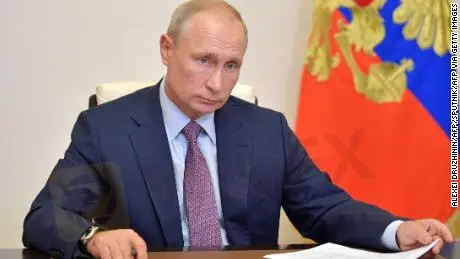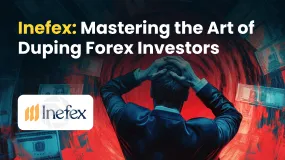Russia's attack on Ukraine: What to expect?
Abstract:Global stocks tumbled early Thursday after Russian forces fired missiles at Ukraine and landed troops on the Ukrainian south coast.

Global stocks tumbled early Thursday after Russian forces fired missiles at Ukraine and landed troops on the Ukrainian south coast.
Vladimir Putin had earlier stated that he has authorized what he described as a special military operation, with explosion expected in the Kyiv Ukrainian capital. President Joe Biden said the US and its allies will impose heavy sanctions on Russia after the attacks.
Russia had repeatedly made known their position against the eastward expansion of NATO especially the imminent admission of Ukraine to the military alliance. Putin felt his nation will not feel safe with a constant threat emerging from the territory of her neighbour.
Financial instruments have responded to the first strike as Brent is seen trading above $100 for the first time since 2014 and Gold surging northward without restrictions. European equities are expected to open lower and the US stocks to follow suit. The attack has ramped up fears that global energy supplies will be disrupted because supply from Russia, the second largest oil producer and the largest supplier of natural gas to Europe has come under sanctions from Western countries. The European countries previously dependent on Russia will have to consider alternative sources for energy supplies further pressuring a tight market.
The Greenback, Swiss Franc and Japanese Yen regarded as safe haven currencies are expected to receive boost from the uncertainties.
Read more

10 Best MUST- READ Books on Forex Trading
Traders neglect the basic education about the forex market and end up losing money. It is one of the common mistakes they do. It is unsaid rule that If you're enter in the jungle of forex, you must read, learn, and understand before you start trading. In this article, you'll get to know about the books on forex trading that you must read.

Inefex: Mastering the Art of Duping Forex Investors
Fallen prey to high-return promises made by Inefex through social media and other platforms? Facing constant pressure from it to deposit funds despite consistent losses in trade? Most probably, Inefex has scammed you like many others. The constant foul play in its operation has been grabbing attention on forex broker review platforms. Check out some of their reviews.

Which Currency Pairs are Most Commonly Traded in India?
Currency pairs play a crucial role in forex trading. To effectively participate in the forex market, it's important to understand which currency pairs are most relevant in your country. For traders in India, knowing the actively traded currency pairs is essential.

Inside the Fake ‘Datuk Seri’ RM400,000 Investment Scam
A man allegedly posing as a "Datuk Seri" is under scrutiny after several individuals reported being defrauded through an investment scheme believed to be linked to him.
WikiFX Broker
Latest News
PayPal reports slow growth in key margin figure even as earnings top estimates
5 Best Forex Brokers in Singapore for 2025
Trump's tariffs could soon bring higher food prices for some Americans, analysis finds
iFourX: So Many Red Flags You Can’t Ignore
Tom Lee's Granny Shots ETF rakes in $2 billion in AUM just 9 months after inception
Starbucks same-store sales fall again, but CEO Niccol says turnaround is ahead of schedule
Singapore holds monetary policy, flags slowdown in second half of the year
Top Forex Chart Patterns Every Trader Must Know
Adidas to raise prices as US tariffs cost €200m
Top 4 Forex Scam Tactics Fake Brokers Use to Trap Investors
Rate Calc

